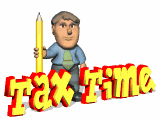Now that tax season is underway, many taxpayers may be wondering what’s the best approach to filing this year: to prepare their taxes themselves or hire a professional. For those that decide to call a tax preparer, it’s important that the selected professional suits their tax needs.
There are many factors to consider when deciding the best way to prepare one’s taxes. Share the following checklist with any of your clients or prospective leads that may be unsure of how to proceed this year. These five questions are sure to help get them started on the right path with the right professional tax preparer.
1. Do I need help from a tax professional?
Whether or not you should hire a professional tax preparer depends on the complexity of your tax situation. Not everyone will need the help of a professional, but the more complex your finances and tax situation are, the more beneficial it could be in the long-run. According to the IRS, it can take the average taxpayer more than 26 hours to research tax law, organize records and complete a standard 1040 with Schedule A, B and D, for itemized deductions, interest and dividends, and capital gains, respectively.
The Texas Society of Certified Public Accountants put together a list of 10 questions to help you determine if you should seek professional tax help.
2. I’ve decided to hire a professional. Who should I call?
There are several options to choose from when selecting someone to help prepare your tax return. Certified public accountants, tax attorneys, enrolled agents (individuals certified by the U.S. Treasury Department), and tax service providers are among the professionals who can help with returns. However, only CPAs, tax attorneys and enrolled agents can legally represent you before the IRS in the event that your tax return is audited.
3. How do I find the right tax preparer for me?
When looking for a tax professional, you should begin the process just like you would if you were searching for any other professional – ask around. Your family, co-workers, lawyer and insurance agent are all good resources. You may also want to look to your local CPA chapter for referrals.
Once you have a list of potential professionals, arrange to sit down with each one, either over the phone or in person. Meeting with them beforehand will allow you to evaluate their personality, work structure and qualifications. Use this time to ask about their fees and their professional background – education level, number of years of experience, areas of expertise, professional certifications and memberships, etc.
4. What qualifications should I look for?
The first thing you should check is the CPA’s license. You can contact the State Board of Accountancy where the professional obtained his/her license to confirm that it’s still active. When you conduct your interviews, you are looking for overall fit. You want to make sure:
- You are comfortable working with the professional you select
- You trust them
- They have good communication and interpersonal skills
- Their professional experience matches your financial needs
- They have good ethics
- They have a solid track record – how many of their previous returns were audited; are they engaged in any bad practices; etc.
5. How much will it cost to hire a professional?
Many factors determine how much it will cost to prepare your taxes. The final cost will depend on how complex your financial situation is, as well as the billing practices of your chosen preparer. During your interview process, be sure to find out if they charge per hour, per number of forms that need to be completed, or if they have a fixed price. You should also bring a copy of your past tax returns and a list of any changes or issues. This will help the tax professional get an idea of your financial situation and determine a fee.
Be aware of any tax preparer that bases their fee on the amount of your refund. This may signal a violation of standard practices.
For additional tax information and resources, visit your local CPA society’s website or www.irs.gov.
Thanks for reading CPA Practice Advisor!
Subscribe Already registered? Log In
Need more information? Read the FAQs
Tags: Software





